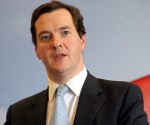Improvement In The UK’s Labor Market

Mark Carney, Governor of the Bank of England is now focused on increasing the UK’s productivity.
The United Kingdom’s working class will be happy to hear that the unemployment rate dropped in the first quarter of the year to its lowest since 2008, plus the average wage grew to its highest since 2011. The unemployment rate is now at just 5.5 percent, with wages rising by 1.9 percent, and the average wage jumping by 2.2 percent.
To maintain these figures Britain needs to make a step forward in its productivity. The new economic outlook will be unveiled in a few days by the Bank of England and investors hope that the benchmark will stay around 0.5 percent for another year until 2016.
This is now the tenth quarter in a row that the UK economy is on the rise, dropping the budget deficit by half and with inflation at zero real household income has been boosted. The re-election of David Cameron came as a surprise in last week’s elections, but it’s clear that his victory came thanks to the Conservative’s economic record.
The only problem that could shake things up is the countries stagnant productivity which is the same as it was in 2008. Output per hour needs to be improved to avoid inflation pressures in the future. Governor Mark Carney will focus his speech on this topic at a press conference today. Material improvement was higher before the start of the recession and the Monetary Policy Committee said in their meeting last month something needs to be done.
The new unemployment rate was predicted by economists at the beginning of the year, but it did concern them when in February the number was at 5.4 percent. The number of people working increased by 202,000 to 31.1 million.
The pound is also on the rise and it’s now trading 1.5719 US dollars, with up 0.3 percent gain.
During the transition from March to April jobless benefits claims were only at 12,600, a number much lower than what economists predicted at the beginning of the year estimating up to 20,000. ILO unemployment is also at its lowest since 2013.
Pay grew by 3.3 percent just in March, the highest since April 2013, while private sector wages were even better with a 4.3 percent rise. Another increase came from pay excluding bonuses that rose by 2.7 percent in the month, showing its biggest jump since 2009. Figures showed there were 733,000 vacancies in the economy between February and April.
The conservative party now needs to justify its victory and keep its track record of economic policy positive. It seems that everyone agrees on the fact that productivity improvement will now be the hardest task for UK policy makers.





